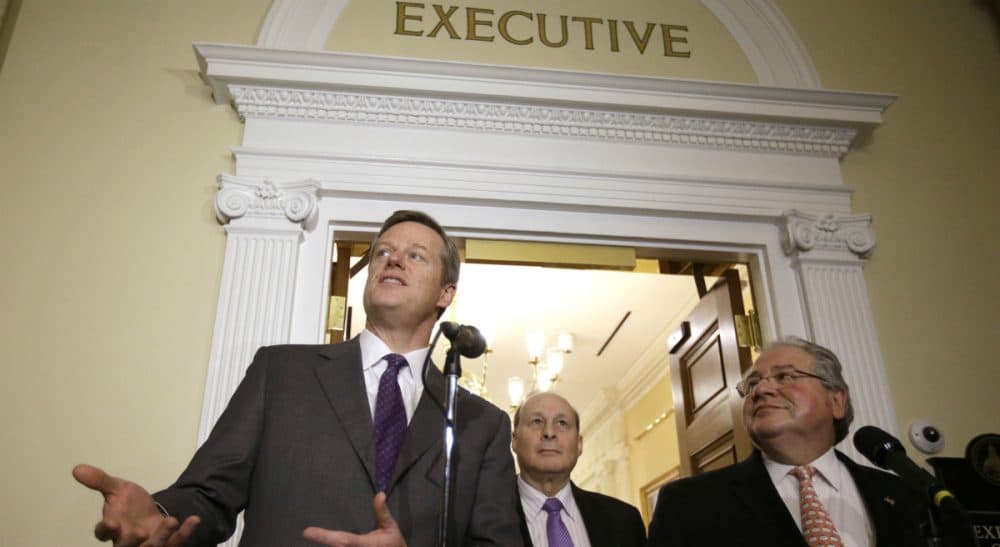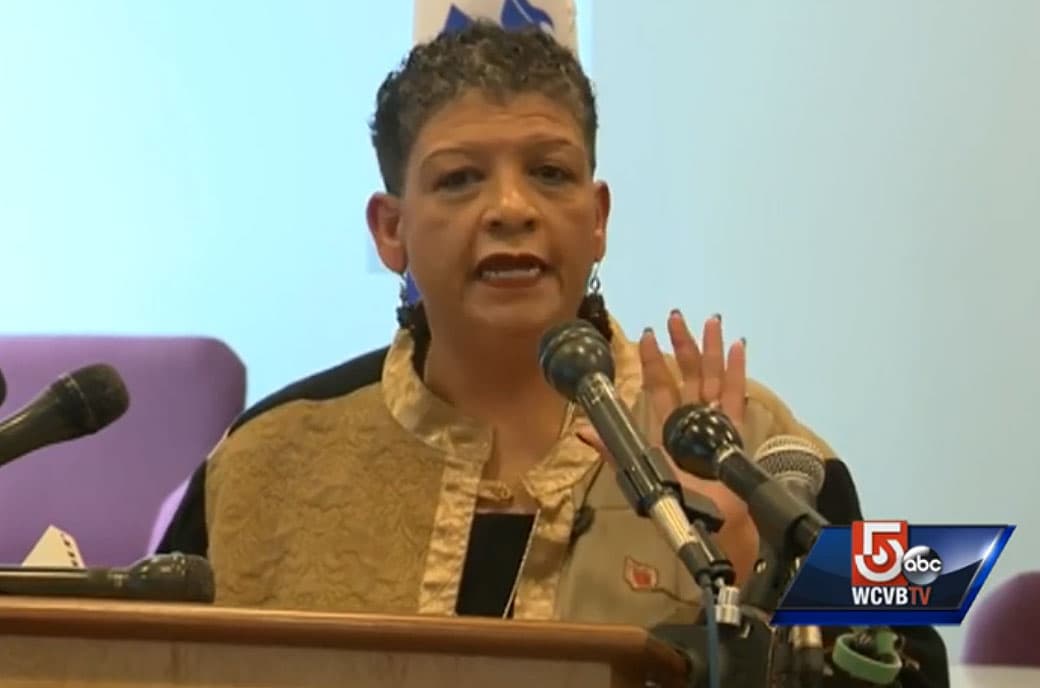Advertisement
Amid The T’s Crisis, Gov. Baker Is Showing His Management Style. It’s Not Pretty.

Throughout his campaign for governor, Charlie Baker regaled us with tales of his nigh superhuman management abilities.
At times it seemed as though through sheer will and broad grin, he alone rescued Harvard Pilgrim Health Care and its customers from certain doom. He was the man with the infallible spyglass, capable of discerning hidden waste in the dark crevices of any organization. He was the leader who drove people to the fulfillment of their potential.
That was the promise of Charlie Baker. In practice, that spyglass looks more like a rifle scope, and MBTA General Manager Beverly Scott was in its crosshairs — until she abruptly resigned on Wednesday. We don’t yet know the precise reasons for her departure, but the pressure from the governor’s office seems a likely factor. Rather than back his MBTA chief, Baker subtly saddled Scott with the blame for problems that weren’t her fault.
We don’t yet know the precise reasons for [Beverly Scott's] departure, but the pressure from the governor’s office seems a likely factor.
While Baker didn’t openly criticize Scott, he made plain his displeasure with the T’s operation under her direction. “It’s pretty clear they need a new operating plan,” he said, implicitly accusing Scott and her agency of incompetence. He described delays as “simply not acceptable” and announced his “disappointment” with the system’s performance, as though it could have been better in spite of its aged equipment and vice-tight budget. In an attempt to insulate himself from the T’s dysfunction, he made sure everyone knows that he has no responsibility for its management, which is the work of a “board [that] was, and is, made up of [former Gov. Deval Patrick’s] appointments.”
There is your executive master class. When the going gets tough, covertly insult your subordinates while protecting your own hide. Baker tried to backtrack, saying Scott was “doing everything she possibly [could].” So his earlier comments seem like kneejerk panic. More leadership genius on display.
Every thinking person knows this wasn’t Scott’s fault. When she took the reins at the MBTA in 2012, the agency was already suffering decades of neglect at the hands of the state Legislature, which has consistently refused to provide the T with the money it needs to make adequate repairs and capital improvements. Importantly, this is not Baker’s fault any more than it is Scott’s, even with the so-called Big Dig debt on the T’s balance sheet. Some want to blame Baker, who oversaw Big Dig financing, but the notion that he directed billions in road-building debt to the T is unfair.

Yet putting your people in the stockade isn’t fair, either, when they’ve done nothing to warrant the punishment. It’s also bad management. Who among Baker’s brass is not looking over their shoulder now, wondering when the boss is going to throw them under the bus, assuming it can make it out of the depot? And how much harder will it be to fill positions in the future? Administrators will think twice about signing on with a man who publicly rides his high horse all over them.
It seems like the most basic of management lessons: When customers, clients or the public come after your employees without justification, you defend them, lest other employees lose confidence in you. This week Massachusetts civic workers have every right to question their confidence in the governor.
The simple fact is that the state and transit riders have spent a long time underfunding the T. The 2013 transportation budget package was insufficient on its face, yet the Legislature went on to cut even that by repealing the computer services tax, which Baker also despised. The public brought out their own knives last November when it voted down gas tax indexing at the ballot box. Keeping pace with inflation might have seemed trivial, but William Straus, the Mattapoisett Democrat who chaired the House side of the Transportation Committee in the last legislative session, told State House News Service, “As a result of the ballot question, there is a gap that exists at least in so far as the next 10 years of transportation expenditures.” That gap, according to Straus, amounts to $2 billion over the course of the decade.
Who among Baker’s brass is not looking over their shoulder now, wondering when the boss is going to throw them under the bus, assuming it can make it out of the depot?
Meanwhile, to help close a $768 million overall budget deficit, Baker wants to carve out another $40 million from transportation, including $14 million from the T, which he is sure will have no effect on service. Is that another management guru trick? Conjuring free lunches from thin air?
The claim that management experience, particularly private sector experience, makes for political excellence has always been a ruse, a form of magical thinking that wins the hearts of voters. The CEO fairy dust clearly wasn’t working for Scott, and hopefully we can all see now it isn’t going to build a modern, resilient public transit system, either. Money is. If the governor wants to show ability where it really matters, he will push for the tax and fare hikes the T desperately needs.
